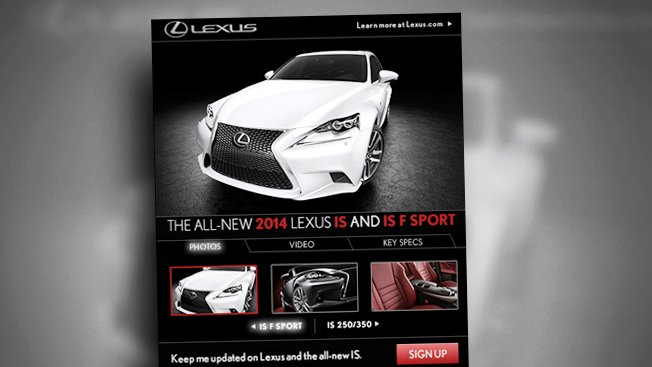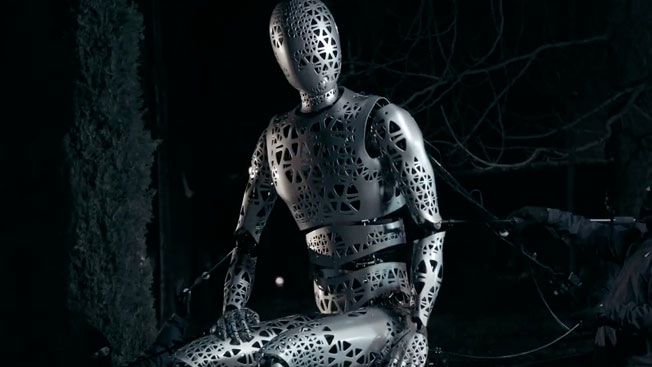![]()
USA is doubling down on its commitment to digital media this year, with a broad portfolio of ancillary projects—six, covering the network's slate of originals—to boost viewership, attract mega fans, and provide deeper ad integrations for the shows' partners while the series are running. This year, the company has not one but four major automotive sponsors (Ford, Toyota, Lincoln and Lexus) buying tie-in digital integrations, and Capital One on a fifth.
Unscripted television is no stranger to these sorts of deals, but USA's collection of character-driven dramedies would seem to be a harder sell, not to advertisers, but to writers. But programming honcho Bill McGoldrick told Adweek that his writers have been using the integrations (created with companies like Ford and Capital One) to further flesh out corners of the worlds they've been creating that might otherwise go unexplored.
"A lot of our shows are closed-ended A stories," McGoldrick said (meaning the episode-long tale that drives a 42-minute narrative). "We usually have a personal B story, and what we have left over tends to be the C story, and that's the mythology. When you start dividing up the pie between the three, you're only left with so much for that C story," he said. The shows' writers, McGoldrick added, like the concept. "Left to their own devices, they'd probably want to tell more of the stories anyway," he said.
To that end, USA will devote what it's calling "social TV" to those mythologies. Covert Affairs will have a video-based "branching narrative" (think a simple role-playing game) generated in partnership with Capital One that follows secondary character Augie (Chris Gorham) through his first mission after being blinded. Gorham is the unofficial mascot of the digital integrations program—and everyone from McGoldrick to marketing and digital evp Alexandra Shapiro says that he devotes significant time to social media promotion of the shows. Covert Affairs gets a deeper backstory for Gorham's character, and Capital One gets an exotic locale in which to tout its services. "We were able to shoot this on location in Spain because the show was filming there," said Shapiro.
Ford is back for one of the longest-running integrations: Neal's Stash—a "treasure hunt" for White Collar, similar to last year's Mozzie's Mission, this time with a crowdsourcing component. Crystal Worthem, brand content and alliance manager for Ford, said that USA's focus on mega fans helped to sell them on the idea. "Ten, 11 years ago, we got involved in a lot of integration, with the biggest being American Idol, and we've found that it's very difficult to get a gauge of how engaged people actually are." With the incentive of further canonical information about their favorite series, though, Worthem said she's pleased with the level of attention, say, the new Taurus is getting from Collar-ites.
"Everybody from Marlboro to airlines understands the power of super-users," said Shapiro. "You have to cater to your rabid, core fans, because they wield a tremendous amount of power and influence, and if they're messaged properly, they have a tremendous ability to affect friends and friends of friends."
Burn Notice will get a third installment of its tie-in DC comic book (which provides pre-series backstory for central couple Michael and Fiona). Necessary Roughness will get a Lincoln-sponsored look into the case files of Nico, the "fixer" for the show's central football team. Toyota will back a Viggle integration that allows fans to look at behind-the-scenes video for Royal Pains, and Lexus will sponsor the first integration for Suits, entitled Suits Recruits.
The latter is a good indication of how quickly USA has to evolve in order to keep its digital components up to speed with rapidly developing tech. The game allows fans to join Suits law firm Pearson Hardman as either an assistant or a paralegal, and it will set up a Twitter/Facebook-style social feed on which fans can talk to each other about the progress of the story. Each set of fans gets proprietary information, and in order to get to the end of the story, each user has to find a different character class to share that info. The integrations are becoming longer and multi-phase to keep viewers hooked over the course of a full season.
All of this, say McGoldrick and Shapiro, is designed not simply to give advertisers a chance to buy more comprehensive spots, but to create a world for fans to get lost in. Increasingly, especially as extremely narrow advertisers like Facebook prove themselves effective, fan service is seen as marketing to fans' friends, who value their pals' opinions or just watch an episode or two to know what a buddy is talking about.
"[Devoted fans] become your most important marketing assets, really," said McGoldrick. "In a lot of ways, more important than the traditional channels you and I grew up with. One of those fans is worth one billboard."










 Lexus, in fact, utilized Facebook's ads and apps in an attempt to win the day at the
Lexus, in fact, utilized Facebook's ads and apps in an attempt to win the day at the 










